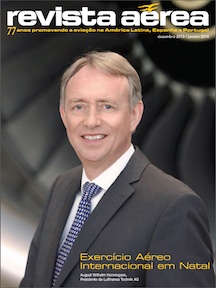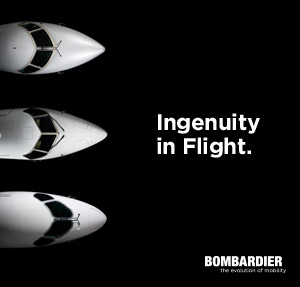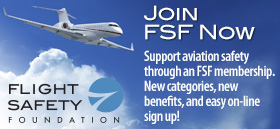CAE named exclusive Dassault-Approved Training Provider for new Falcon 5X aircraft
January 29, 2014
MONTREAL, CANADA–(Marketwired – Jan. 29, 2014) – (NYSE:CAE)(TSX:CAE)
CAE and Dassault today announced an agreement naming CAE as the exclusive Dassault-Approved Training Provider (DATP) for the newly-launched Dassault Falcon 5X. This includes the provision of advanced pilot, maintenance and cabin crew training for the all-new Falcon 5X long-range business jet, which was launched at NBAA’s Business Aviation Convention & Exhibition (BACE) show in October 2013.
“We are very pleased with our long-standing partnership with CAE,” said Frederic Leboeuf Vice President, Falcon Operational Support, at Dassault Aviation, “and we are delighted to expand our relationship with the addition of the Falcon 5X.”
“CAE is very proud to be part of the innovative, new Falcon 5X aircraft program as the approved training partner,” added Nick Leontidis, CAE Group President, Civil Simulation Products, Training and Services. “The process was highly competitive and our customer-focused approach, technological leadership and global training center network are what set us apart. We will be ready for training with a complete training program, including the deployment of two full-flight simulators, to support entry-to-service of the 5X.”
To support this program, CAE will develop the world’s first two Falcon 5X simulators. CAE has designed, developed and delivered the world’s first full-flight simulators for more than 40 new aircraft from 16 different original equipment manufacturers (OEMs).
CAE will work closely with Dassault to determine the best initial location for deployment of training services based on customer demand. Additional deployments are also planned to support the growth of the Falcon 5X aircraft fleet.
As a factory-approved training provider for Dassault Falcon, CAE delivers Falcon training around the world for the 7X, 2000, 2000 EX/EASy I & II, 900, 900B, 900 EX, 900 EX/EASy I & II, 50, 50EX, and 10.
CAE offers business aviation training on more than 80 different aircraft platforms and operates over 60 full-flight simulators in a global network of eight locations, including Amsterdam, Netherlands; Sao Paulo, Brazil; Shanghai, China; Dubai, UAE; London, UK; New York, Phoenix, and Dallas, USA.
GlobalAir.com Enhances FBO Fuel Prices App GPS Location Enabled
January 28, 2014
January 27, 2014 – Globalair.com announced today the anticipated addition of GPS functionality to its “FBO Fuel Prices” app. Now when users are flying they have the ability of selecting the GPS option that will show the users location in relationship to the airports they are near.
This new capability will enable a pilot in the air to locate the closest airport and/or the best fuel price in that area. Jeff Carrithers, President of GlobalAir.com explains. “This app is really a great tool for any pilot who is in charge of filling up the tanks. Globalair.com maintains one of the most up to date fuel pricing indexes on the internet and now with the GPS tracking you can locate any airport up to a 100 mile radius from your location and find the fuel price. Once the airport is selected they can see which FBO is offering the fuel price and can contact them through the apps email system or local Unicom or ARINC frequency.”
Other updates include: Fuel brand logo of the FBO, Time stamp of last update, compatibility to iOS7.
The app has additional information regarding the specific airport chosen via its Airport Resource mobile unit website. Including information such as METAR, NOTAMs, navaids, current Weather and Terminal Procedures.
The app can be purchased for a one-time fee of $3.99 at the App Store by searching “FBO Fuel Prices”.
Based in Louisville, Kentucky, GlobalAir.com serves the general aviation, business aircraft, and regional airline communities by offering clients and online visitors a wide range of premium aircraft and aviation-related data and services. Services offered by GlobalAir.com include Aircraft Exchange which lists aircraft for sale or lease, Airport Resource Center (ARC) that displays U.S. airport data, and the flight path planning application Max-Trax. GlobalAir.com’s websites receive more than 100,000 unique visitors per month and help connect the aviation industry. For more information regarding GlobalAir.com, visit http://www.globalair.com, e-mail ray@globalair.com, or call 888-236-4309 and speak with Ray Robinson, Media Manager.
The SSJ100 will start operations on the US routes
January 28, 2014
Venice (Italy) January 28, 2014
The operational record and future activities of the SSJ100 aircraft in service with the Mexican airline Interjet have been discussed during a Top Executives Meeting, held on January 22 in Madrid, between Interjet and the partners involved in the aircraft’s manufacturing and development, United Aircraft Corporation, Alenia Aermacchi, SuperJet International and Sukhoi Civil Aircraft Company.
The meeting offered an interesting exchanging of views with regards to the operations of the Mexican airline Interjet, the first western customer of the SSJ100 aircraft.
The different aspects of the discussion emphasized the satisfaction of Interjet for the aircraft performance and for the range of services offered in support of SSJ100 fleet. Namely, Interjet confirmed the enviable dispatch reliability of the 4 aircraft in service, in the range of 99% after four months of very intensive operations with a total of over 2.500 flight hours.
Interjet also confirmed to have achieved all the necessary Authority approvals to fly the SSJ100 on routes from Mexico to North America, planning to serve new US destinations in the next months.
The parties expressed their satisfaction for the progress of the SSJ100 Program and of the partnership, being confident on always increasing market perspectives in the near future.
“This is another brilliant achievement for Interjet and for the SSJ100. As promised, we are opening new routes taking advantage of the SSJ100 overall performances which will soon begin to fly to the US for the first time” says Mr. Miguel Aleman Magnani, Executive President of Interjet.
“We are extremely pleased with Interjet operational score. Even at the very start of operation with our Mexican customer, the aircraft demonstrated high dispatch reliability and remarkable daily utilization rate. It confirms the fact that SSJ100 is an absolutely competitive product for the world market, which can successfully operate in critical environments as well” says Mikhail Pogosyan, President of United Aircraft Corporation.
In addition, it has been confirmed the commitment for the delivery in 2014 of 11 SSJ100 to Interjet.
“The success of SSJ100 with Interjet testifies the excellent results of the Russian–Italian partnership. I am confident we will soon reach other milestones to pave the way to the success of the aircraft worldwide” says Giuseppe Giordo, Chief Executive Officer of Alenia Aermacchi.
During the meeting the parties stated that the good performance of the aircraft with the first Western customer and the opportunity to demonstrate it in the US will have a positive effect on the progress of the SSJ100 Program and lead to the further market success.
AJW Aviation wins ‘The Aviation 100 Parts Supplier of the Year’ Award for second year running
January 27, 2014
London, 27th January 2014: AJW Aviation, the leading independent complete aircraft spares support specialist, is proud to have once again been announced as the winner of ‘The Aviation 100 Parts Supplier of the Year’ Award 2014.
Now in its fourth year, the Airline Economics ‘Aviation 100’ awards is one of the largest events of its kind and recognises the year’s industry leading performers, based on votes and top ten rankings across strict criteria. 2013 was a year of amalgamation, increased finance and leasing interest in the parts market, with investors taking more interest than ever in buying out parts supply companies. AJW Aviation has continued its dominance of the aftermarket during the past 12 months and has again, for the second year running, been voted for by its peers in a four month long survey.
Accepting the award was Ian Malin, AJW Treasurer, Director & Chief Investment Officer who commented “The criteria for this award included parts stocked, current and new clients over the past 12 months, locations, number of employees, ability to source, supply and timescales. This criteria is a continuous reminder of AJW’s outstanding achievements in the last year alone, and is a great start to 2014 for the Company. We are very proud to once again accept this award, particularly as it is voted for by our peers from across the aviation industry, including our customers, partners and suppliers, which makes it especially important to us.”
AJW is based out of London, Dubai, Singapore, Miami and Montreal with further Airbus and Boeing inventory hubs across the globe. Already highly regarded for its award-winning 24/7 AOG and critical component supply services, AJW continues to develop a service portfolio which now incorporates component repair as well as integrated consumables, engine and airframe part-out activities. A significant global leader, AJW serves a customer base of more than 800 airlines, in over 115 countries and with over 400 aircraft under contract.
Hartzell Engine Technologies acquires Jasco Alternators
January 23, 2014
Acquisition of the alternator products further strengthens Hartzell Engine Technologies’ commitment to supporting the needs of an ever-broadening array of general aviation aircraft, including classics, agricultural and helicopter owner/operators.
Montgomery, AL, January 04, 2014 — Mike Disbrow, president of Hartzell Engine Technologies LLC, announced today that the company has purchased the Jasco Alternator line formerly held by Skytronics Incorporated.
“Our strategy is to grow each of our current product lines – alternators, starters, turbochargers, cabin heaters, and fuel pumps – both organically and through strategic acquisition,” Disbrow said. “The Jasco Alternator line will enable us to begin offering high-quality products to new segments of the general aviation markets including classic and agricultural aircraft and piston helicopters. It is the perfect complement to our current family of alternators.”
Available in both 12- and 24-volt systems, and with 50- or 70-amp output, the lighter-weight Jasco Alternators have become the go-to replacement alternators for old pad-mounted generators found on radial engines, as well as, on standard opposing piston engines used on many classic aircraft and piston helicopters.
“The reason Jasco Alternators have been around for nearly 50-years is that they provide great performance and reliability at a reasonable cost,” Disbrow added. “Once we have certifications in place we’ll assimilate production of the Jasco alternator line into our Montgomery, Alabama facility.”
“The purchase of Jasco Alternators line illustrates Tailwind Technologies’ ongoing commitment to investing in Hartzell Engine Technologies as well as the growth of general aviation,” Disbrow stated. “We see this as another example of our resolve to continue expand and strengthen our leadership position in the markets we serve.”
CAE sets new record for full-flight simulator sales with 43 sold year to date
January 21, 2014
– C$70 million in new contracts for five full-flight simulators
MONTREAL, CANADA–(Marketwired – Jan. 21, 2014) – (NYSE:CAE)(TSX:CAE) – CAE today announced that it has set a new record for the sale of full-flight simulators (FFS) with 43 FFS already sold year to date in fiscal 2014. The latest contracts include the sale of five full-flight simulators — one B787 simulator to Air Canada, one B737NG simulator to an undisclosed customer in North America as well as two A320 simulators and one B737NG simulator to an undisclosed customer in Asia.
The contracts are worth more than C$70 million at list prices, and bring the total number of FFS sales announced to date for fiscal year 2014 to 43. List prices include the value of OEM aircraft-specific data, parts and equipment (DP&E), normally procured by CAE in the manufacture of its simulators. In the case of these contracts, some customers are providing part of the OEM content. Two of the five simulators sold were recorded in CAE’s third quarter and three in its fourth quarter.
“We are seeing unprecedented demand for simulation equipment, including from Asia’s high growth market, and we are proud to maintain our leadership position in this robust market. We are pleased to have already exceeded our record in the sale of full-flight simulators with the year not yet complete,” said Nick Leontidis, CAE Group President, Civil Simulation Products, Training and Services. “CAE has been a partner with Air Canada for over 20 years and we are proud to continue to support its training needs as it embarks upon its fleet renewal and growth strategy.”
Bombardier Aerospace Delivers 238 Aircraft and Receives Orders for 388 Aircraft in 2013
January 20, 2014
– Business aircraft: 180 deliveries; 305 net orders
– Commercial aircraft: 55 deliveries; 81 net orders
– Amphibious aircraft: 3 deliveries; 2 net orders
MONTREAL, QUEBEC–(Marketwired – Jan. 20, 2014) – Bombardier Aerospace announced today that it delivered 238 aircraft during 2013, compared to 233 aircraft deliveries in the previous calendar year ended December 31, 2012. The company also received orders for 388 aircraft, net of cancellations, compared to 481 orders, net of cancellations, for the previous year.
“The global economy has remained persistently sluggish, and with its recovery taking longer than originally anticipated, 2013 continued to be a challenging year for aviation,” said Guy Hachey, President and Chief Operating Officer, Bombardier Aerospace. “Despite this difficult environment, we put in a solid performance overall. We had a successful order intake that included firm orders from a broad base of customers located in both traditional and emerging markets. A few of these included Flexjet LLC, VistaJet, American Airlines, the Ilyushin Finance Co. (IFC) of Russia and Iraqi Airways.”
“Bombardier’s strategy of geographic diversification in targeted countries continued to gain momentum in 2013. Our focus to expand our products’ presence in growing international markets yielded results with orders from customers based in Africa, Asia-Pacific, China, the Middle East and Russia. We are encouraged by the volume of orders for both business and commercial aircraft, and the resulting strong order backlog. As well, we achieved a significant milestone with the sale of one of our Bombardier 415 amphibious aircraft to a customer in the U.S.,” added Mr. Hachey.
Business Aircraft
In 2013, Bombardier delivered 180 business jets, compared to 179 for the previous calendar year ended December 31, 2012. Bombardier delivered 10 fewer business aircraft in 2013 compared to guidance, mainly due to the transition from the Learjet 40 XR and Learjet 45 XR aircraft to the Learjet 70 and Learjet 75 aircraft, which entered into service in the fourth quarter of 2013. During this same period, the company received 305 net orders for business jets, compared to 343 for the previous year.
Commercial Aircraft
In 2013, Bombardier delivered 55 commercial aircraft, compared to 50 for the previous calendar year ended December 31, 2012. The 2013 deliveries were in line with guidance. During this same period, the company received 81 net orders for commercial aircraft, compared to 138 for the previous year.
First ATR ‘-600’ Flight Simulator qualified in Latin America
January 20, 2014
The simulator, set up in Bogota, will be operated by the Colombian carrier Avianca with the support of ATR
ATR is pleased to announce the set-up of the very first ATR ‘-600 series’ Flight Simulator in Latin America. The Full Flight Simulator (FFS) is located at the training facilities of the Colombian carrier Avianca, in Bogota, and has recently obtained certification from both Europe’s EASA (European Aviation Safety Agency) and Colombia’s UAEAC (Civil Aviation Special Administrative Unit). The FFS features an electric-pneumatic motion system allowing for silent operation and reduced power consumption, and a front projection collimated 200°x40° visual display system.
The FFS is configured for training on the newest ATR 72-600 series version, and besides Avianca, is also available to all the other ATR -600 series operators in the Latin America and Caribbean region.
As of today, ATR has more than 170 aircraft operating in the Latin America and the Caribbean region in the liveries of more than 30 airlines, including some 50 ATR ‘-600s’ versions,. Within the next three years, the total of new ATR ‘-600s’ in operation in the region will double.
Today’s announcement is a new major step in ATR’s policy of continuous support to its operators worldwide. The set-up of the new Full Flight Simulator in Bogota will complement the worldwide offer for ATR training, already expanded last year with the opening of new Training facilities in Johannesburg and Singapore. Besides this Avianca project, ATR operates two ‘-600’ Training simulators in Toulouse and Singapore.
Commenting on the announcement, Filippo Bagnato, Chief Executive Officer of ATR, declared: “This new ATR-600 Training Simulator, coupled with our new Customer Support offices in Sao Paulo and Miami, is an important step beyond of our aim to further develop our operator-oriented offer in a region where we have experienced strong success in recent years. Our new ATR ‘-600s’ have become a reference among regional aircraft, also in Latin America. By providing the most innovative training tools and a large customer support offer we aim to consolidate our leading position in the region and to further contribute to the regional air connectivity across the continent”.
Airbus Helicopters suministrará 6 helicópteros Super Puma AS332 C1e al Estado Plurinacional de Bolivia
January 17, 2014
Marignane, 17 de enero de 2014 – La Fuerza Aérea Boliviana elige la potente última versión del Super Puma para combatir el narcotráfico, cumplir tareas de seguridad civil y de apoyo a la población a lo largo del país. El contrato incluye un paquete logístico para dar sostenibilidad a la flota en los próximos años. La entrega de los primeros helicópteros tendrá lugar este año y los otros cuatro de aquí al 2016.
La firma de este contrato confirma la voluntad ya expresada por el Presidente Evo Morales durante su encuentro con el Presidente François Hollande en Nueva York en Septiembre del pasado año y permitirá a la Fuerza Aérea Boliviana renovar y potenciar su flota con helicópteros dotados de la más moderna tecnología. El contrato incluye también un paquete logístico de apoyo que tiene como objetivo dotar a la FAB con los medios y conocimientos necesarios para garantizar una alta disponibilidad de su flota de helicópteros.
“Estamos muy orgullosos de dotar a nuestras Fuerzas Armadas con helicópteros de nueva generación, capaces de responder a los retos presentes y futuros de la Fuerza Aérea gracias a su moderna tecnología”, declaró el General Víctor Hugo Meneses Gómez, Comandante General de la Fuerza Aérea Boliviana. Estos helicópteros se dedicaran principalmente a la lucha contra el narcotráfico, y cumplirán también misiones de defensa civil y apoyo a la población en caso de desastres naturales a lo largo del país. El General Meneses subraya que “considerando las condiciones extremas de operación en Bolivia, la elección del modelo Super Puma fue también motivada por su versatilidad, seguridad, y por su capacidad de operar en regiones de gran altitud“.
“Agradecemos a las Fuerzas Armadas Bolivianas la renovada confianza en nuestros helicópteros” declaró Mesrob Karalekian, Vicepresidente Comercial para América Latina de Airbus Helicopters. “El Super Puma es un helicóptero multipropósito y potente que se adapta perfectamente a las exigencias operativas región y que permite ir más allá en la misión con toda seguridad gracias a la tecnología embarcada de última generación”.
La relación entre Airbus Helicopters y la Fuerza Aérea Boliviana se inició hace varias décadas con el Lama y el Alouette. Hoy en día operan el Ecureuil AS350 B3 y desde el año pasado también 2 EC145 dedicados al transporte de autoridades y apoyo a la población. Con esta nueva adquisición, la Fuerza Aérea Boliviana se verá beneficiada de un programa de transferencia de tecnología que incluye la capacitación de más de 80 técnicos y pilotos tanto en Francia como en Bolivia y contará con el suministro de herramientas especiales necesario para el establecimiento de un centro de mantenimiento principal, donde se realizarán visitas intermedias (cada 500 horas) y dos bases operacionales que permitirán hacer revisiones menores (100 horas), siendo el objetivo que las FAB dispongan de una autonomía estratégica.
La Familia Super Puma se adapta especialmente bien a las operaciones en América Latina, donde actualmente hay más de 100 helicópteros en operación y más de 60 nuevos pedidos en curso. Su capacidad para operar tanto en altura (techo de servicio certificado a 7620 metros) como en ambientes de selva, y con temperaturas extremas (de -45°C a 50°C) le permite superar sin problemas los desafíos operativos de la región, especialmente de la Cordillera de
los Andes y del altiplano con condiciones particulares de altura y de temperatura.
Rápido, potente, fiable y seguro, el Super Puma de Airbus Helicopters es además un aparato
extremadamente rentable debido a sus bajos costos de mantenimiento (DMC) y un débil
consumo de combustible. Así presenta un costo de ciclo de vida inferior en un 30% a otros
aparatos de la misma categoría. Dispone además de equipos tecnológicos de última
generación como el piloto automático de 4 ejes (AFCS) que permiten una mayor eficacia de la
misión al reducir la carga de trabajo del piloto al tiempo que aumenta la seguridad en el
despegue y aterrizaje.
Con más de 4,75 millones de hora de vuelo en todo el mundo, la familia Super Puma de Airbus
Helicopters se ha convertido en la referencia indiscutible en la categoría de 9 a 11 toneladas y
está presente en casi todos los países de América Latina. De los 830 helicópteros entregados
hasta la fecha, más del 75% están al servicio de las Fuerzas Armadas donde llevan a cabo una
gran variedad de misiones que van desde el asalto y el combate hasta las operaciones
especiales, el transporte táctico, la búsqueda y rescate, la evacuación sanitaria y el transporte
de altos cargos. La adaptabilidad y la polivalencia de este aparato, capaz de ser rápidamente
configurado para diferentes misiones, es una de las grandes ventajas de este helicóptero que
ya se ha ganado la confianza de 94 clientes en 48 países.
Revista Aerea – dezembro 2013 / janeiro 2014
January 15, 2014









